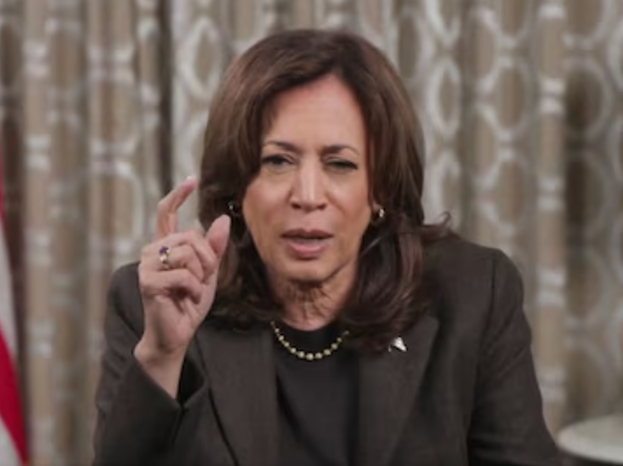A video released by U.S. Vice President Kamala Harris following her defeat to Donald Trump in the 2024 presidential race has ignited heated debate, with critics questioning her delivery and even labeling her a “functioning alcoholic.”
The video, Harris’ first address since her concession speech at Howard University, sought to rally Democrat supporters in the aftermath of the party’s loss. “I know this is an uncertain time. I’m clear-eyed about that. I know you’re clear-eyed about it, and it feels heavy,” Harris said, striking a reflective tone.
She encouraged supporters to remain steadfast, stating, “Don’t you ever let anybody take your power from you. You have the same power that you did before November 5th, and you have the same purpose that you did, and you have the same ability to engage and inspire.”
Harris also highlighted the historic fundraising achievements of her campaign, noting, “Because of your efforts, we raised an historic 1.4 billion dollars from grassroots supporters alone.”
However, the message was quickly met with derision from Republicans and Harris’ critics. Some questioned her coherence, while others speculated about her state during the recording. Virginia Foxx, a Republican Representative from North Carolina, compared the video unfavorably to “a dial-up modem sound played on an infinite loop.” Dan McLaughlin, a writer for National Review, suggested the video reflected disorganization within Harris’ team, writing, “No video like this would ever have been released by a politician who is not hated by her staff.”
On social media, detractors made harsher accusations. A widely shared post labeled Harris a “functioning alcoholic,” while others criticized U.S. financial aid to Ukraine, juxtaposing Harris’ critics with allegations against Ukrainian President Volodymyr Zelenskyy.
The speech has drawn mixed reactions, with Democrats defending Harris as addressing a challenging political moment, while her opponents cast it as a symbol of poor leadership.
As the political fallout continues, the Democratic Party faces the daunting task of uniting its base after a stinging defeat, while Harris grapples with heightened scrutiny on her leadership and public communication.



